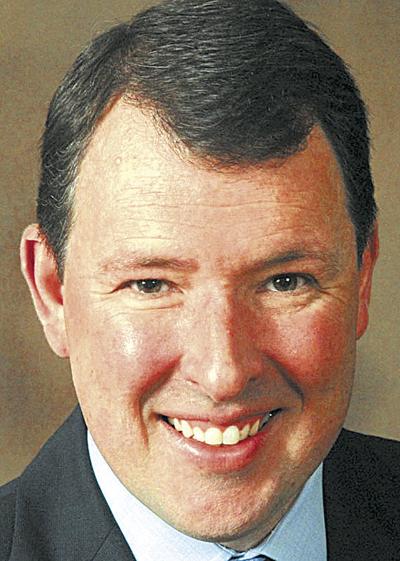After two days of testimony by our military commanders on the Biden administration's disastrous withdrawal from Afghanistan, here is what we have learned: Joe Biden is (as the president once termed a skeptical town hall attendee) "a lying, dog-faced pony soldier."
In an interview with ABC News's George Stephanopoulos last month, Biden said none of his military advisers had recommended leaving a residual force of 2,500 troops in Afghanistan. But Gen. Mark A. Milley, chairman of the Joint Chiefs of Staff, and Gen. Kenneth F. McKenzie Jr., head of U.S. Central Command, both testified that they had advised Biden — as well as President Donald Trump — to keep 2,500 or more troops in the country.
McKenzie told the Senate Armed Services Committee, "I recommended that we maintain 2,500 troops in Afghanistan. ... The withdrawal of those forces would lead inevitably to the collapse of the Afghan military forces and eventually the Afghan government." He told the House Armed Services Committee his assessment had been proved correct: "My concern was that if we withdrew below 2,500 and went to zero, that the Afghan military and government would collapse. And of course, that's not a potential counterfactual; that is in fact what happened."
Milley said that what while he would not discuss the specific advice he gave the president, his consistent assessment under both Trump and Biden was that "we should keep a steady state of 2,500, and it could bounce up to 3,500." He said failure to do so risked losing "substantial gains" made over two decades of fighting in Afghanistan and could "damage U.S. worldwide credibility" and result "in a complete Taliban takeover." Defense Secretary Lloyd Austin testified that "their input was received by the president and considered by the president."
This directly contradicts what Biden said in his interview. Stephanopoulos told Biden, "But your top military advisers warned against withdrawing on this timeline. They wanted you to keep about 2,500 troops." Biden responded: "No, they didn't. It was split. Tha -- that wasn't true. That wasn't true." Stephanopoulos interjected, "They didn't tell you that they wanted troops to stay?" Biden answered empathetically: "No. Not at ... not in terms of whether we were going to get out in a time frame all troops. They didn't argue against that."
Stephanopoulos pressed again "So no one told ... your military advisers did not tell you, 'No, we should just keep 2,500 troops. It's been a stable situation for the last several years. We can do that. We can continue to do that'?"
"No. No one said that to me that I can recall," Biden replied.
Not a word of what Biden said was true. Both Milley and McKenzie advocated he leave a residual force, and the recommendations of military leaders were not "split." Asked which general had advocated for full withdrawal, White House press secretary Jen Psaki did not name one.
No doubt Secretary of State Antony Blinken advocated full withdrawal. He has been pushing for withdrawal for more than a decade, since he was deputy national security adviser in the Obama-Biden administration. But Blinken is not a general. Biden was asked about the advice he got from his "military advisers" — and they were united in telling the president that he should leave a residual force, and that if he failed to do so, the Taliban would probably take over the country. They were right.
The military commanders also confirmed other Biden lies. For example, Biden claimed in a news conference that al-Qaeda was "gone" from Afghanistan, but Milley testified that "al-Qaeda is still in Afghanistan. They were there in mid-August," when Biden made that false claim.
Biden claimed no allies were questioning the United States' credibility, but Milley told the Senate committee, "I think that our credibility with allies and partners around the world, and with adversaries, is being intensely reviewed by them to see which way this is going to go. And I think that 'damage' is one word that could be used, yes."
And Biden said he had no choice but to withdraw because of the Doha agreement he had inherited from Trump. But Milley testified that Taliban violated almost every commitment they made in that agreement. "While the Taliban did not attack U.S. forces, which was one of the conditions, it failed to fully honor any, any other condition under the Doha agreement," including its promise to renounce al-Qaeda.
The awful agreement Trump negotiated was effectively voided by the Taliban's failure to adhere to its terms. Biden's decision to withdraw from Afghanistan was a choice — one that he made against the unified advice of his military commanders. As commander in chief, he was perfectly free to reject that advice. But as a president accountable to the American people for his decisions, he is not free to lie about it.
2021, Washington Post







(0) comments
Welcome to the discussion.
Log In
Keep it Clean. Please avoid obscene, vulgar, lewd, racist or sexually-oriented language.
PLEASE TURN OFF YOUR CAPS LOCK.
Don't Threaten. Threats of harming another person will not be tolerated.
Be Truthful. Don't knowingly lie about anyone or anything.
Be Nice. No racism, sexism or any sort of -ism that is degrading to another person.
Be Proactive. Use the 'Report' link on each comment to let us know of abusive posts.
Share with Us. We'd love to hear eyewitness accounts, the history behind an article.